Starting at just $5 per month, Shopify pricing is transparent and straightforward, consisting of monthly and per-transaction fees.
Shopify Pricing Plans: Comparison, Fees & Calculator
This article is part of a larger series on Retail Management.
Shopify offers a starter plan perfect for social media selling at $5 a month and a full-fledged online store starting at $39 a month. Shopify’s affordable pricing plans (along with its ease of use and robust yet scalable features) earned it the top spot in our list of the best ecommerce platforms.
However, if you’re just starting a Shopify online store, expect to pay $300 to $600 in startup fees and around $75 to $150 in monthly expenses at the beginning, including add-ons. If you need to sell in-store as well, that will be an additional $49 to $499 for hardware purchases plus an $89 per location monthly fee for using Shopify POS Pro (which we recommend).
Our Quick Take: Even with Shopify’s latest price increase, it still provides the most cost-effective solution for startups and small businesses and offers exciting scalable features for thriving businesses. Its recent winter update included hundreds of new features and improvements that are worth more than the price increase. You can read more about the new features in our Shopify review.
We cover Shopify pricing plans and feature inclusions in this guide. But more importantly, it details how much Shopify truly costs—including setup, add-on, recurring, and incidental fees you may incur managing a Shopify store.
Shopify Pricing & Fees at a Glance
Shopify Starter | Basic Shopify | Shopify | Advanced Shopify | |
|---|---|---|---|---|
Monthly Fees* | $5 | $39 | $105 | $399 |
Online Card Fees | 2.9% + 30 cents | 2.9% + 30 cents | 2.6% + 30 cents | 2.4% + 30 cents |
In-person Card Fees | 2.7% | 2.7% | 2.5% | 2.4% |
Transaction Fees (Third Party Provider) | 5% | 2% | 1% | 0.5% |
Best For | Selling on social media (no standalone store) | Storefronts and small online sales | Growing ecommerce businesses | High-volume sales |
*Shopify collects sales taxes in certain states where it is required by law. The prices stated here do not reflect such taxes.
Shopify Fees
It’s important to know the differences between credit card processing fees and transaction fees regarding Shopify’s specific pricing model.
- Credit card processing fees (otherwise known as credit card fees) are charged by Shopify and allow you to accept major credit cards, such as Visa and Mastercard, as payment in your online store.
- Transaction fees are additional Shopify charges (on top of credit card fees) if you use a third-party payment provider to take payments. It covers the charge to integrate Shopify with your chosen provider. Transaction fees vary based on your Shopify plan subscription. They are waived if you use Shopify’s payment processor, Shopify Payments.
For example, if you’ve subscribed to Basic Shopify and use Shopify Payments, online purchases have credit card fees of 2.9% + 30 cents per transaction. If you use a third-party payment gateway, expect to pay a 2% transaction fee for each sale on top of credit card rates.
Use our Shopify fees calculator below to know how much you will be paying in fees on top of your monthly subscription based on your monthly sales.
With Shopify Payments, you can fully integrate your checkout within your store without needing to redirect customers to a different platform, such as PayPal, to complete a purchase. If you accept offline payments with a point-of-sale (POS) system, you can use Shopify’s POS with Shopify Payments to consolidate online and in-store sales. What we like about Shopify Payments is that it doesn’t restrict you from accepting other payment types. You can still activate PayPal, Amazon Pay, and more for your checkout options.
Another advantage of using Shopify Payments is having the Shop Pay feature and the ability to set up a local currency on your checkout page. Shop Pay allows customers to save payment details between Shopify stores for faster checkout. It’s similar to Apple Pay and Google Pay in that shoppers can complete orders in one click.
Shopify Fees Calculator
Shopify Prices vs Other Ecommerce Platforms
Best For | Monthly Plans | Start-up Costs | Extra Fees (On Top of Card Fees) | Full Review | |
|---|---|---|---|---|---|
Online and multichannel retailers | Starts at $5 | $300–$600 | $300–$600 | ||
High-volume sellers | Starts at $39 | $800–$1,000 | Zero transaction fees | ||
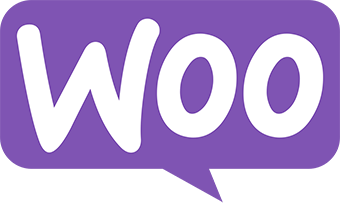 | Businesses that use WordPress | Free | $500–$1,000 | Zero transaction fees | N/A |
Considering all the add-on costs, expect to initially shell out around $300 to $600 to launch a Shopify store. We compared our cost estimate to other ecommerce platforms’ startup costs and found that creating a Shopify store is the more economical option.
For example, WooCommerce is a free WordPress plugin; however, it requires you to invest in hosting plans and other add-ons, so expect to pay around $500 to $1,000 as a startup (roughly includes shared hosting, a paid website theme, and a few paid plug-ins).
Meanwhile, with BigCommerce, startup costs are around $800 or more, depending on your online store’s expected sales volume. This estimate comes with no website developer. If you prefer to work with a developer, expect to pay a few thousand more.
What you can save on startup fees with Shopify might go to its monthly transaction fees on your online sales. BigCommerce does not have transaction fees, making it an ideal solution if you are a high-volume seller or plan to use a processor other than Shopify Payments.
If Shopify’s startup budget is too much for you, you can explore our top picks for free ecommerce platforms. While they can be limited in features, you might find one that is enough to start your online store and upgrade when business is more profitable.
How to Choose the Right Shopify Plan for You
Of all the ecommerce platforms we have evaluated, Shopify’s pricing plans bring the most value for buck—they meet the needs of all types of sellers with a wide range of budgets. For example, sellers that don’t need a Shopify website can sell securely on blogs and Facebook for just $5 per month, while businesses needing a website can launch one on any budget.
The Basic Shopify pricing plan delivers what most small online sellers need to get started for just $39 per month—a full online store and robust marketing tools such as an abandoned cart saver, email marketing, and the ability to create discounts and promo codes.
Meanwhile, Shopify and Advanced Shopify support growing and volume sellers by adding a range of advanced reporting, marketing, and shipping functionality for $105 and $399 per month, respectively.
Here are a few tips on deciding which Shopify plan is the best for your business:
- Evaluate the features of each Shopify plan. The best plan for your business should be based on the features you need.
- Consider Shopify’s transaction fees. It might be worth getting a higher-tiered plan to save on transaction fees. For example, if you sell more than $25,000 per month, the Shopify plan is worth the higher monthly fee because of its lower fees.
- Think about the savings you can take advantage of. For example, you can avoid additional transaction fees by using Shopify Payments. Additionally, you can have additional discounts on prepayments for one- and two-year subscriptions to Shopify.
- Consider additional Shopify costs. POS hardware costs, domain fees, and additional app subscriptions can add up.
Shopify Pricing Plans Comparison: How Much Does Shopify Cost?
Shopify Starter | Basic Shopify | Shopify | Advanced Shopify | |
|---|---|---|---|---|
Monthly Fees (Month to Month) | $5 | $39 | $105 | $105 |
Monthly Fees (Billed Annually) | $5 | $29 | $79 | $299 |
Standalone Store | N/A | ✓ | ✓ | ✓ |
Staff Accounts | 1 | 2 | 5 | 15 |
Inventory Locations | 1 | Up to 4 | Up to 5 | Up to 8 |
Shipping Discounts | N/A | Up to 77% | Up to 88% | Up to 88% |
Excluding Shopify’s Starter ($5/month), Shopify’s pricing plans come with the following features:
- Unlimited products
- Up to 1,000 inventory locations
- Sell in 133 currencies
- Multilingual store translation
- Point-of-sale features: Shopify POS & POS Go
- Gift cards
- Online sales channels
- Fraud analysis (when using Shopify Payments)
- Manual order creation
- Marketing tools (abandoned cart saver feature, discount codes, and more)
- Customer support—24/7 live chat and phone support in English; 24/7 email support in multiple languages
Shopify Starter
Shopify Starter is ideal for new sellers that plan to sell through social media platforms or messaging apps and do not want to maintain an online store. We recommend Shopify Starter, aptly, for those starting out. Once a customer base and product demand have been established, we encourage you to explore Basic Shopify, which includes value-added features like theme editing, blog posts, and more.
Basic Shopify
Basic Shopify delivers everything the new or small business seller needs to sell online, market their website, create a blog, and sell in person or on other channels like Amazon, Facebook, and Pinterest. Basic Shopify is very much in line with the needs of small-volume online sellers.
Shopify
The Shopify plan gives you all of the features of Basic Shopify plus advanced capabilities like cart recovery, gift cards to optimize sales, and expanded reporting capabilities. With this plan, sellers using Shopify Payments to process credit cards also pay a lower processing rate. So, if you are a volume seller and process more than $25,000/month in sales, the Shopify plan is worth the monthly fee.
Advanced Shopify
Advanced Shopify is geared toward high-volume sellers who use all the capabilities of the full Shopify plan but need added features such as real-time shipping rates and customizable reporting. Advanced Shopify sellers also get the lowest Shopify Payments processing rates of all four plans. If you sell more than $110,000/month, the Advanced plan is worth the higher monthly fee.
But that’s not all. If you outgrow the Advanced Shopify plan, Shopify prices its Enterprise plan, Shopify Plus, to meet specific needs. With this option, you can custom-tailor ecommerce features and save even more on credit card processing. This starts at $2,000 per month and includes custom-discounted processing fees.
Interested in learning more about Shopify’s features? Read our Shopify review.
Additional Costs to Launch a Shopify Store
After considering the cost of Shopify’s monthly plans, you also need to consider the extra costs you will incur when launching your store. We have listed additional options you might need and their corresponding fees.
Additional Feature | Pricing | Recommended For | |
|---|---|---|---|
In-person selling | Shopify POS Lite | Free | Pop-up shops, markets, and occasional sales |
Shopify POS Pro | $89/month per location* | Brick-and-mortar shops that do in-person selling and online sales | |
Shopify POS Hardware | $29 to $299, one-time fee | ||
Online Sales | Domain Name | Starts at $11/year if purchased through Shopify | Businesses wanting to develop their branding to establish credibility and reputation |
Shopify Website Themes | Starts at $180, one-time fee | Businesses wanting more variety for their website design | |
Add-ons and Integrations | Depends on plug-in | Businesses wanting to improve or strengthen their website’s performance and streamline operations |
*Shopify POS Pro is free with a Shopify Plus plan (for enterprise users).
Here’s a full breakdown of the additional Shopify fees listed above.
Domain Name
When you create a Shopify site, you automatically get a free “www.storename.myshopify.com” domain. However, you’ll probably want to upgrade to a custom domain name. You can use your domain if you already have one or purchase a new one through Shopify. Domains purchased through Shopify start at $11 per year. The exact pricing depends on which top-level domain (TLD) extension you choose (such as .com, .net, .store, etc.).
Note that Shopify’s domain name registration doesn’t include any email hosting. We recommend that you compare these prices with other domain name registrars. If you go that route, then you can transfer it to Shopify. Learn how to choose a domain name.
Shopify Website Themes
Shopify offers about nine free and over 90 premium website themes, with prices starting at $100. You can hire a Shopify expert if you need help customizing a paid theme.

Shopify’s OS 2.0 Theme: Dawn (Free) (Source: Shopify)
Shopify consistently launches new themes. Its latest theme, Online Store 2.0 (OS 2.0), introduces sections and blocks which offer modularity, flexibility, and, to some extent, drag-and-drop capabilities. The new free theme for OS 2.0, Dawn, is mobile-first and 35% faster than Shopify’s themes for the previous version of the store builder (now referred to as “Vintage”).
Add-ons & Integrations
One of the reasons Shopify is a popular and highly rated ecommerce platform is its fantastic app store. If you want extra functionalities such as dropshipping or membership programs, you might benefit from signing up for add-ons in the Shopify App Store.
There are free and paid integrations, which usually charge a monthly fee. Thousands of integrations available, so you should know the most popular add-ons used by Shopify owners to get an idea of which features you can add to your store. These plug-ins and add-ons can significantly improve your online store’s usefulness and your business’ performance.
Shopify POS
Shopify POS Lite is free with your Shopify ecommerce plan, and it works great for running temporary stores such as pop-up shops and farmers market locations. However, those who want to use the app for their brick-and-mortar operations will likely want to upgrade to Shopify POS Pro for $89 per location. The main difference between the two is access to advanced features such as smart inventory management and in-store analytics.
Shopify POS Hardware
If you sign up for the Shopify POS, then you will also need Shopify’s hardware options (such as a card reader) to support mobile and in-store sales. Each hardware solution includes free shipping, 30-day returns, 24/7 customer support, and a one-year warranty. One-time fees range from $29 to $299.
Shopify POS is a consistent top pick for retail POS systems, multichannel POS systems, and POS inventory systems. Interested in finding out more about Shopify POS? Read our Shopify POS review and learn how to use Shopify POS.
Here are sample hardware solutions for Shopify POS.
Shopify Hardware Fees
Tap and Chip Readers | Shopify Stands | Barcode Scanners | Shopify POS Go |
|---|---|---|---|
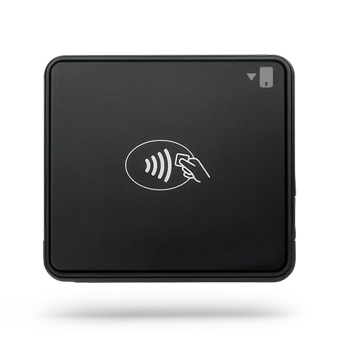 | 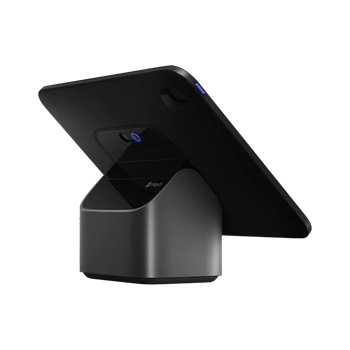 | 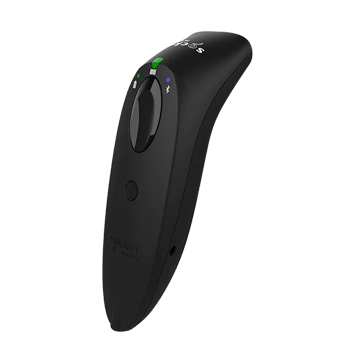 | 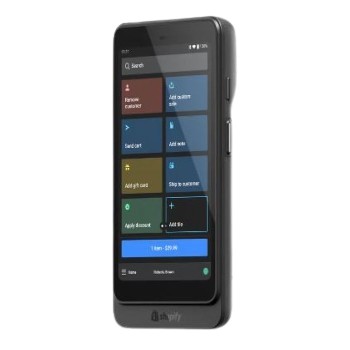 |
$49 | $149–$185 | $229–$329 | $399 |
Best for: Mobile sales | Best for: Brick-and-mortar stores | Best for: Retailers with large inventory or sales volume | Best for: Mobile and curbside sales |
If you plan to use Shopify POS for a temporary market, pop-up sales, or on a seasonal basis, you can rent its hardware through Shopify’s partnership with Fello.
Shopify Pricing Frequently Asked Questions (FAQs)
When building a Shopify store, expect to pay $250 to $500 in start-up fees. Monthly fees will depend on your subscription plan and any add-ons you use to operate your online store, but we estimate expenses to be around $50 to $100. However, if you need to sell in-store, too, you need an additional $30 to $300 for hardware purchases plus an $89 per location monthly fee for using Shopify POS Pro.
It depends on your business needs. If you are a new seller and plan to only sell through social media and messaging apps, Shopify Starter ($5/month) is perfect for you. However, if you need an online store and multichannel sales capabilities, go with Basic Shopify ($29/month). Once you scale and need advanced selling features, upgrading to Shopify ($79/month) is worth it because you also save on card and transaction fees. If you are already a high-volume seller, maintain multiple warehouses, and need the full powerhouse features Shopify provides, Advanced Shopify ($299/month) is the perfect plan for you. Read the difference in Shopify and Shopify Plus to help determine which plan is better for you.
Shopify’s entry-level plan, Shopify Starter, is priced at $5/month. It provides a checkout link and allows you to sell through social media channels.
Shopify’s transaction fees depend on your chosen subscription plan. Shopify transaction fees range from 0.5%–2% under the Basic Shopify, Shopify, and Advanced Shopify plans. If you go with the Shopify Starter, transaction fees are at 5%.
Yes, it is. Shopify recently rolled out a price increase for its subscription plans and also launched hundreds of new features and improvements. You can easily sell on social media for only $5 a month or build a full online store with all the bells and whistles starting at $39 a month.
All Shopify plans are month-to-month except when you sign up for an annual subscription.
For us, the sweet spot is the Basic Shopify plan at $39 a month. You can sell on multiple sales channels, build a full online store, sell in-person, and have a basic marketing tool kit—a lead generation tool (Shopify Forms), email marketing (Shopify Email), abandoned cart saver, promo codes, and more. Shopify’s latest updates give more tools that adding a plug-in (which is an additional cost) is no longer needed.
Bottom Line
Shopify prices its ecommerce plans to meet virtually any small business’s budget and selling needs. At $5 per month, Shopify’s entry-level plan provides you with a checkout link and allows you to sell through social media channels. Full-featured plans starting at $39 per month allow beginner sellers to start their online store and give them room to scale.
Consider additional costs when setting up your Shopify store, but don’t be discouraged by them. What’s great about these investments is that they deliver more profit in the long run. We suggest you launch your store first and add more features (integrations) as the need arises.
Start your free trial before choosing a plan for three days, and extend it to three months for just a dollar a month.